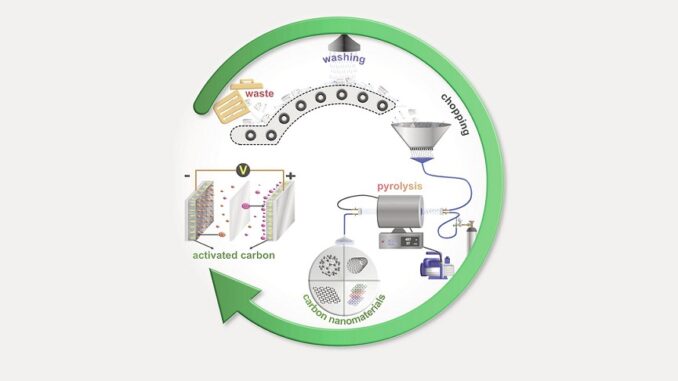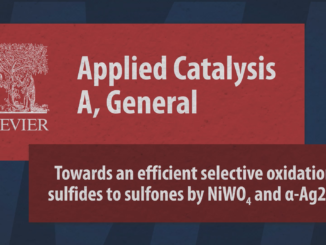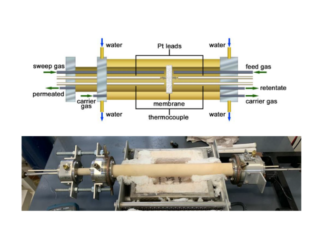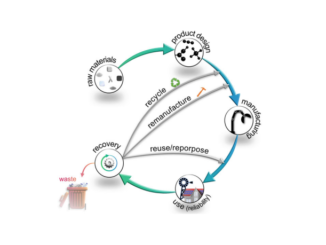
Sustainable energy and waste management: How to transform plastic waste into carbon nanostructures for electrochemical supercapacitors
Abstract: Plastic waste consumption increases exponentially every year, mainly in the last three years due to the COVID-19 pandemic. The rapid growth of plastic products has exceeded the world’s capacity to deal with this type of trash. Thus, it has become a substantial environmental concern in modern society. Another dire concern is the improper disposal of used supercapacitors, leading to serious environmental impacts. Consequently, critical action to tackle this issue is to transform trash into high-valued materials, such as carbon nanomaterial supercapacitors. Considering several methodologies of recycling, pyrolysis stands out due to its simplicity and easy handling of mixed plastic waste to produce carbonaceous materials with different dimensions (0, 1, 2, and 3D). Thus, from this technology, it is possible to create new opportunities for using plastic waste and other types of waste to produce cheaper carbon-based materials for supercapacitors. This review aims to provide readers with a sustainability-driven view regarding the reutilization of plastic trash, discusses the environmental consequences of not doing so, and shows plastic waste solutions. Despite the broad scope of the topic, this review focuses on identifying the currently studied strategies to convert plastic waste into carbon-based electrodes, using less expensive and more efficient competitive protocols, besides emphasizing the diverse types (0, 1, 2, and 3D) of nanostructures. This review also proposes promising options for a sustainable cycle of plastic waste and supercapacitor.
Author(s): Elisangela Pacheco da Silva; Vanessa Hafemann Fragal; Elizângela Hafemann Fragal; Thiago Sequinel; Luiz Fernando Gorup; Rafael Silva; Edvani C. Muniz
Waste Management
Publushed: 1 November 2023, Volume 171, Pages 71-85
DOI: https://doi.org/10.1016/j.wasman.2023.08.028
CDMF
The CDMF, hosted at the Federal University of São Carlos (UFSCar), is one of the Research, Innovation and Dissemination Centers (RIDC) supported by the São Paulo State Research Support Foundation (Fapesp), and also receives investment from the National Council Scientific and Technological Development (CNPq), from the National Institute of Science and Technology of Materials in Nanotechnology (INCTMN).




